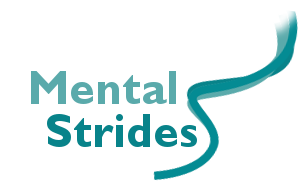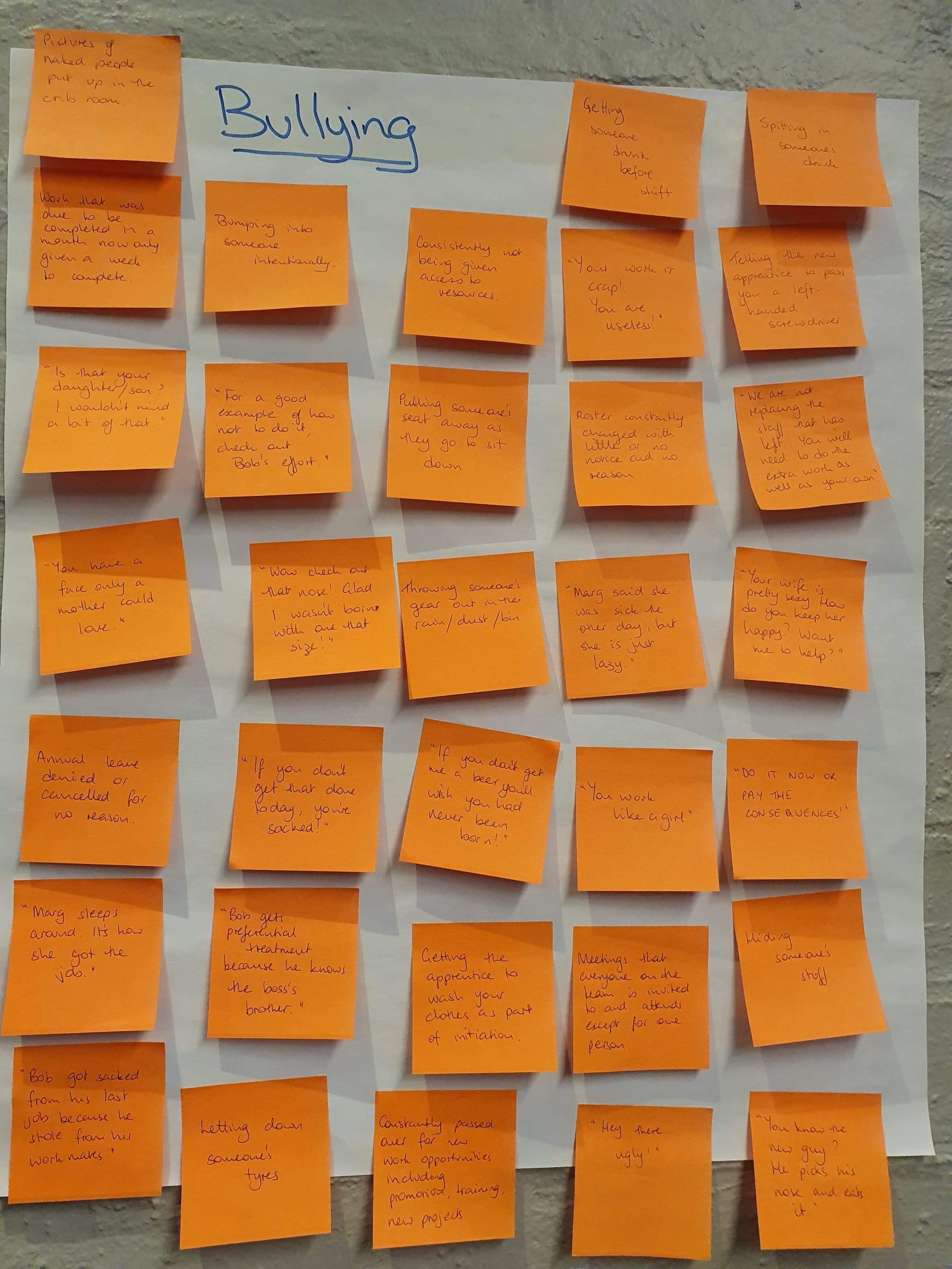Bullying – It really is never okay.
I was reading the newspaper the other day – not something I usually do, as I often turn straight to the puzzle page – and was sad to read yet another account of bullying in schools.
Having been on the receiving end of bullying during my school years, I feel for these kids (being a chubby kid with a weird name in the 60s and 70s in Sydney did not endear me to the mainstream kids).
Unfortunately, it is not just in schools where bullying occurs. Bullying and harassment can, and often do, happen in all areas and stages of life. Sporting clubs, workplaces, social settings, friendship groups, religious institutions, social media platforms, families …
It can be very obvious and out in the open for everyone to see – name-calling, putting people down, physical violence, or threatening messages. It can also be less obvious – giving someone a nickname they may not like, banter that goes too far, having inappropriate pictures in a workplace, ‘initiating’ new staff members (you know, getting the apprentice to buy a left-handed screwdriver), practical jokes, rumours …
I can almost see the eye rolls – is this all political correctness gone mad? Can’t we have fun anymore? What’s wrong with giving someone a nickname or having a bit of banter around the place?
Of course, we can have fun but we need to remember it should be fun for everyone, not just a few. And nicknames are a big part of Australian life but they can be hurtful. I was given the nickname Angle Grinder by a senior staff member at a previous job some years ago … they thought it highly amusing. Me? Not so much.
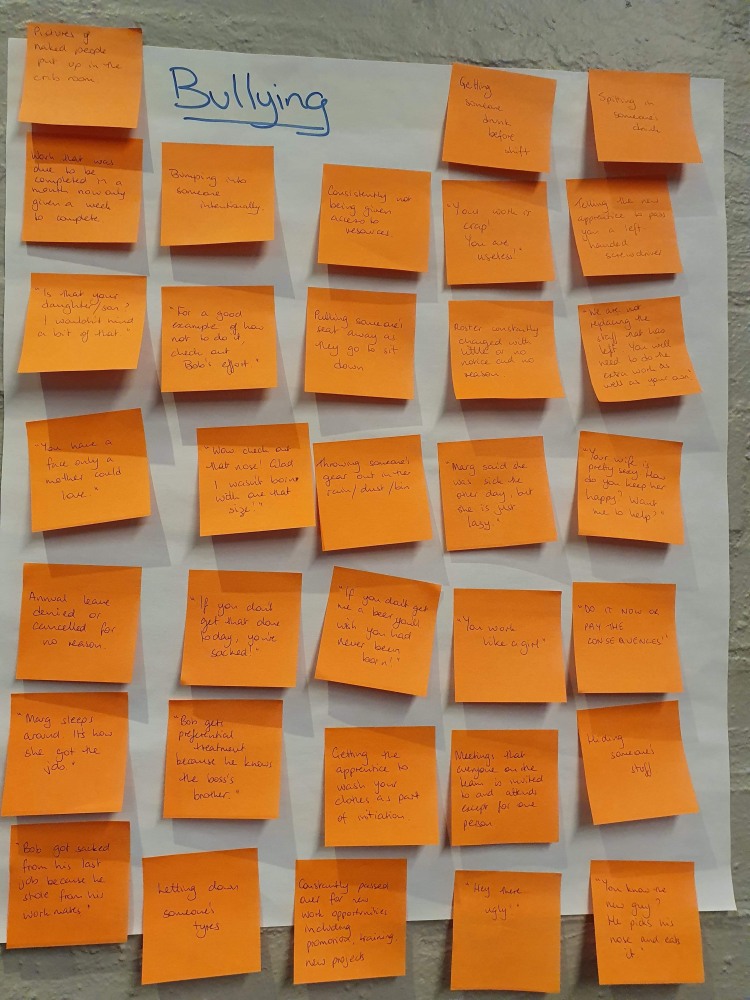
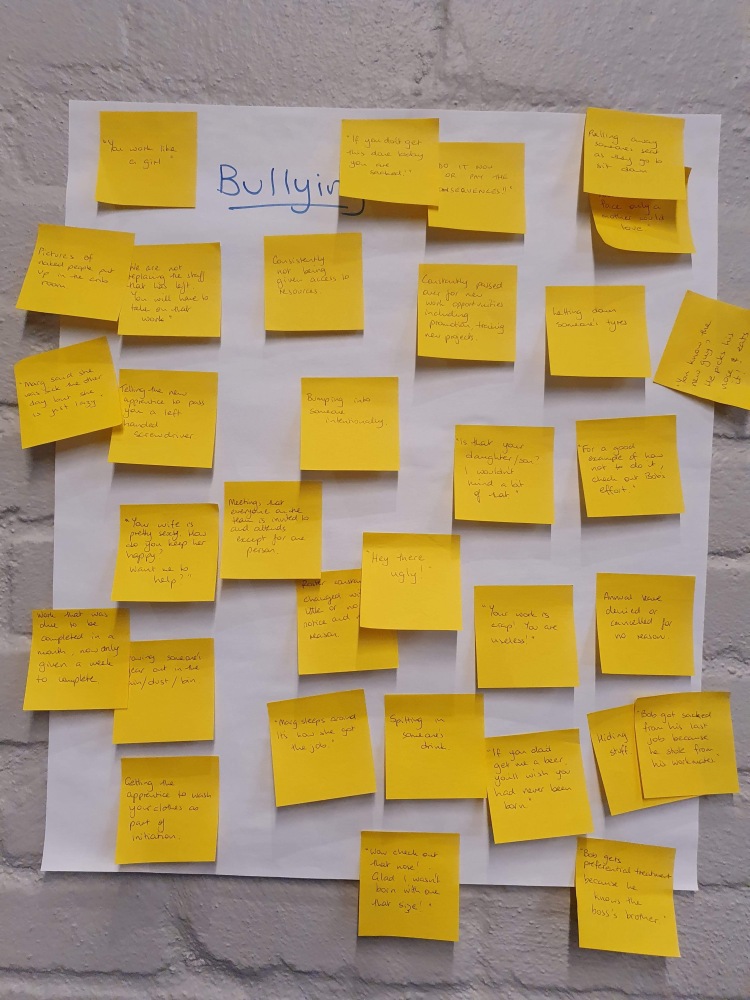
If you follow Mental Strides on Facebook or LinkedIn, you’ll know we have been working with organisations to build supportive mental health cultures for a few years now. A theme that comes up time and again is the occurrence and impact of workplace bullying and harassment.
I have been told stories of open hostility, being belittled and put down in front of colleagues, unfair treatment, threats to jobs and/or personal safety, being ostracised, rumours, gossip, lies, relentless practical ‘jokes’ (clothes being hidden, boots nailed to the floor, air let out of car tyres) … the list is almost endless.
The impact of bullying and harassment ranges from mild discomfort to unhappiness, all the way to the development of mental and physical health problems including suicidal thoughts and behaviours.
In the workplace, bullying and harassment often result in low staff morale and a high turnover of staff (further reducing morale).
Many organisations are working on ways to address increasingly problematic and at times dangerous behaviours associated with bullying and harassment. Some get rid of the ‘bully’ which can seem the sensible thing to do but doesn’t always fix the issue.
We need to remember that the responsibility for bullying and harassment goes beyond just the perpetrators themselves, to the system that allows it to happen.
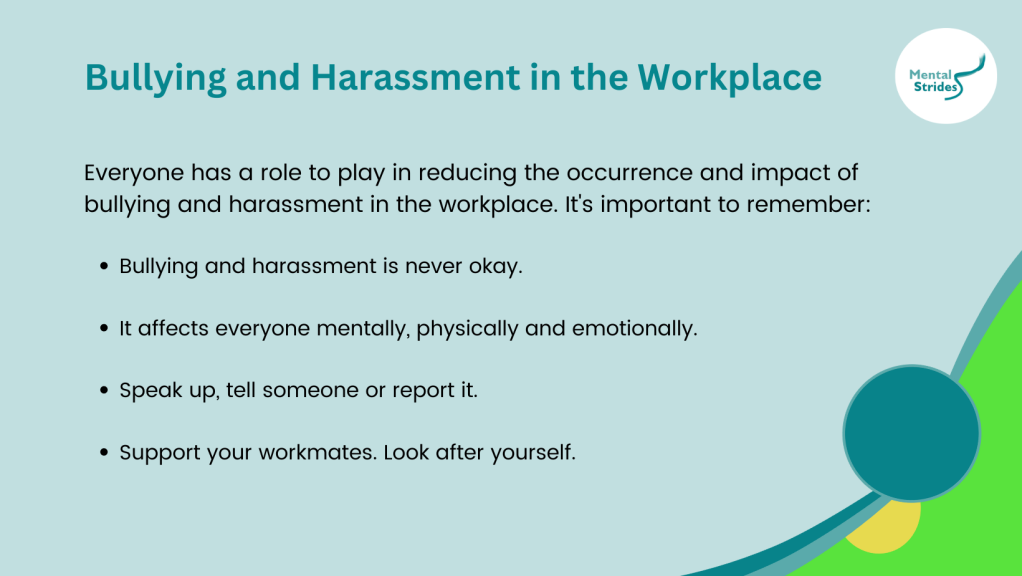
Everyone has a role to play in reducing the occurrence and impact of bullying and harassment.
Whether it is reporting the behaviour, checking our own actions, writing and implementing policy, supporting those who are impacted or looking after our own selves to build resilience, we can all contribute to environments where people feel supported, valued and happy.
About the Author

Engel Prendergast is a Mental Health Consultant, working with organisations and groups to build a culture that supports good mental health.
Engel is a licensed, master Mental Health First Aid instructor, safeTALK instructor, and a Lifeline Crisis Supporter and Mentor. She holds a Bachelor of Science (Health Promotion), Diploma of Counselling, and a Certificate IV in Training and Assessment.
With natural compassion, a determination to help others and extensive experience in training and facilitation, Engel provides an environment that fosters learning and ownership.
